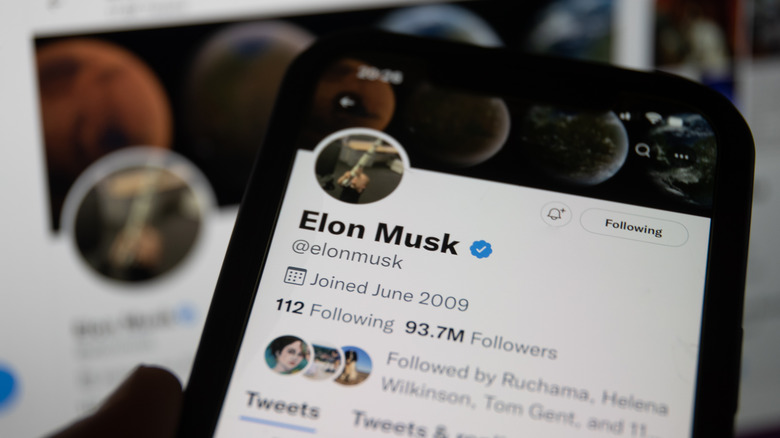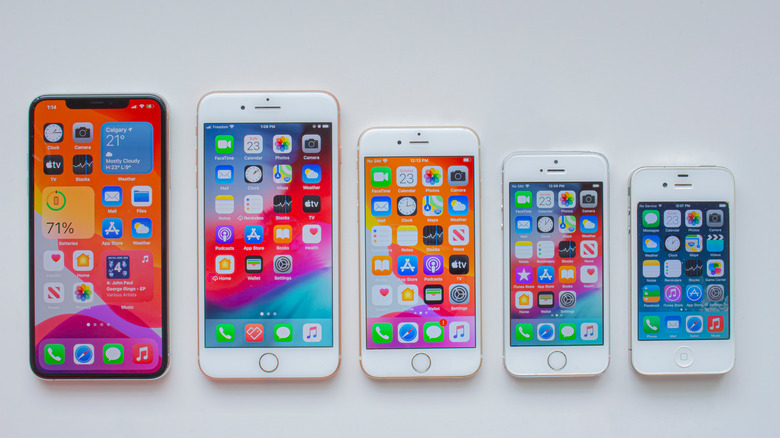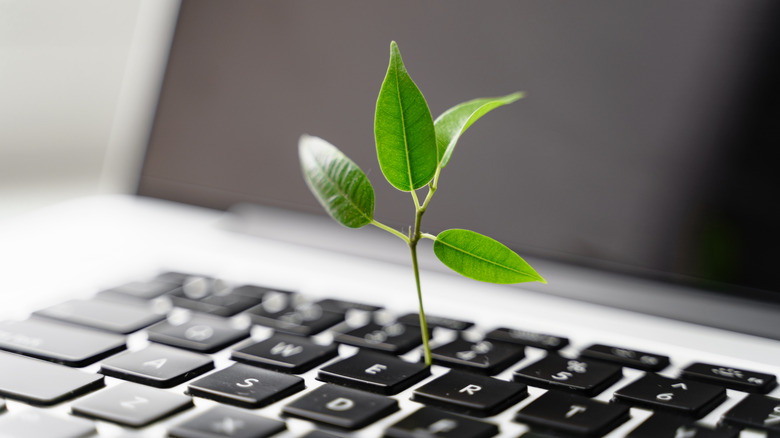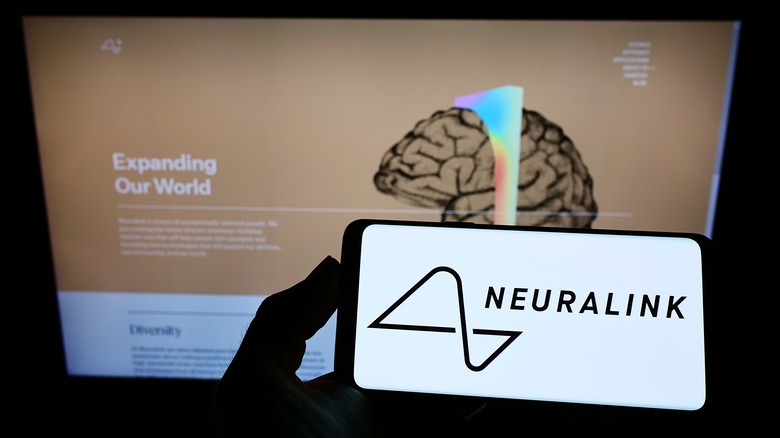Why Your iPhone Is Yesterday's Technology, According To Elon Musk
Tesla founder-turned Chief Twit, Elon Musk, is in the news a lot lately. Controversy surrounds his decision following the recent Twitter takeover, but Musk was stirring the pot long before that. In a 2020 tweet, the billionaire wrote "smartwatches and phones are yesterday's technology" in response to a rumor that his company, Tesla, was in the process of developing smartwatches.
On the surface, Musk is simply stating his opinion, but the statement conveniently went out less than 24 hours before an Apple event at which the company was expected to launch a new Apple Watch model (the Watch 6). With his reputation online, the timing of the comment suggests that he meant to take a swipe at Apple. He also stated that his company, Neuralink — which is developing brain chips that'll enable humans to interact with devices via their thoughts — is the future .
To better understand Elon's claim, let's compare Neuralink's ambitions with the current pace of innovation in the smartphone industry. Case in point: the iPhone.
Apple: Then and now
Apple has consistently improved upon the iPhone since its first release in 2007, marking the beginning of the smartphone revolution. The iPhone pioneered and popularized features like the touchscreen and utilities like an App Store. With each upgrade the company promises better performance, more storage, and even larger screens. Its evolution is easily tracked.
Because of this upgrade record, and Apple's expert marketing team, many Americans consider the iPhone to be the best smartphone. And even Elon Musk used to think so. In a 2018 interview with Recode's Kara Swisher, he said, "There's not many products you can buy that really make you happier. And so Apple did that for a long time. I still think, obviously, that Apple makes great phones...."
But, Apple's inventiveness has plateaued, said Musk. In his words, "Apple used to really bring out products that would blow people's minds, you know?... but there's less of that [today]...I don't think people are necessarily running to the store for the iPhone 11." Musk has a point — the iPhone is still a beautiful piece of technology, but there's hardly any novelty to the features on even the most premium of new iPhones. The best iPhones do the same things other smartphones do, but better (depending on which user you ask). Musk, however, thinks the smartphone has peaked, and the next step in tech evolution looks a little different.
More jabs at Apple
Musk also fired shots at Apple's sustainability practices on a conference call discussing Tesla's earnings back in 2021, as covered by CNBC. When answering a question about Tesla's supply chain, Musk pitted his company against Apple in the use of cobalt, a crucial component used in making lithium-ion batteries for smartphones and electric cars. In his words, "on a weighted-average basis, we might use 2% cobalt compared to, say, Apple's 100% cobalt."
Cobalt mining has been a hot topic in tech ethics because of its adverse environmental effects — cobalt extraction renders vast tracts of land useless and contaminates water sources. In addition, the presence of cobalt in lithium ion batteries makes them highly inflammable. Even when they're off or inactive, cobalt batteries can spontaneously catch fire. Exposure to the metal also poses significant health risks: poisoning, heart failure, lung disease, and cancer— mere contact with the metal can cause a nasty rash. Even worse, cobalt mining is notorious for using child labor, forcing minors to work in life-threatening and inhumane conditions. In fact, Apple and Tesla (as well as Microsoft, Google, and Dell) were slammed with a lawsuit in 2019 for being allegedly complicit in the deaths of several Congolese children who were forced to mine cobalt.
Neuralink is the future?
Musk thinks he's making better decisions than Apple. Tesla has already switched to using cobalt-free batteries, and Musk is convinced his neurotechnology company will deliver on the tech evolution where Apple is failing. Musk's Neuralink is working to create an implantable brain-machine interface which is a device that, once implanted in the human brain, would enable a computer to translate a person's thoughts into action. The goal is to enable humans to operate a computer or smartphone without physical interaction, which is an ambition that lends new meaning to the anecdote "if you can think it, you can do it."
According to the official Neuralink website, the company's first priority is "to help people with paralysis regain independence through the control of computers and mobile devices." It also promises that the first Neuralink product "will enable someone with paralysis to use a smartphone with their mind faster than someone using thumbs." If Musk's ambitions come to fruition, while Apple only continues to innovate at its current pace, iPhones do seem like they'll be yesterday's technology.



